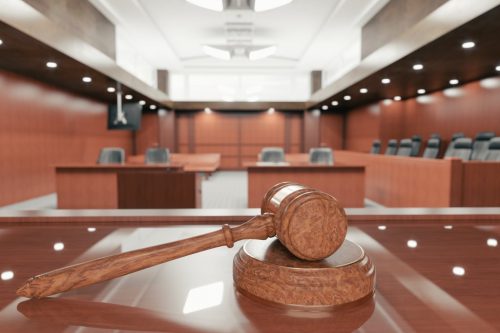

By Crescenzo Vellucci
Vanguard Sacramento Bureau Chief
SACRAMENTO, CA – Just a few days after hearing the case, the U.S. Court of Appeals for the Ninth Circuit early this week did what it seemingly promised last week, dismissing an appeal by the Sacramento Homeless Union against the city of Sacramento.
The Union, which has routinely obtained temporary restraining orders from the federal court in Sacramento to “ease the suffering and saved lives during the deadly, record-breaking heat waves of 2022 and 2023,” said it will continue to fight in the courts and the streets for the unhoused.
“Moving unhoused people during extreme weather puts their safety at risk and violates their constitutional rights,” said the union in a statement after the decision was rendered, adding, “We will continue to advocate for the protection of the most vulnerable members of our community.”
The three 9th Circuit justices signaled there really wasn’t much to appeal when they heard arguments March 14, asking, “Why are we here? Something is over (the TRO to stop the city from clearing encampment in extreme heat). What’s the beef?”
“Why should we spend our time on a situation that may or may not happen…that has expired. This is not a class action, (it’s about an) order that is expired…so this may be an advisory order. It’s mute. You can come back this coming summer,” queried the court.
The justices also noted that “after all these years,” there hadn’t been a trial, no resolution…same case forever, incredible.”
Anthony Prince, chief legal counsel to the Homeless Union, in an exclusive interview with The Vanguard, said the Union wouldn’t mind going to trial with the city of Sacramento over the matter, but federal courts for two straight years have provided some relief to the unhoused by ordering the city to, in effect, “stand down.”
Prince added, in response to the 9th Circuit’s query, it’s “not about challenging the clearing of encampments…we are challenging the custom and practice to move people out of area where they had protection from heat and sun to areas to where they are exposed. It’s a state-created danger…making (the unhoused) more vulnerable.”
The federal district court last year in Sacramento found “clearing ‘encampments belonging to the unhoused’ during ‘extreme heat’… exposes the homeless to significant heat-related health risks so plaintiffs would likely prevail on their…’state created danger’ theory of Fourteenth Amendment liability,” the City stated in opposition of the court and maybe anticipating an encore in the summer of 2024.
“They (the Ninth Circuit) may not want to rule either way,” said Prince after last week’s appearance in court, noting the “state-created danger” issue is “looking toward the future…a power dynamic between homeless in Sacramento and maybe other cities.”
The Appeals Court said as much last week, noting—when told there were close to 10,000 homeless in the county and close to 5,000 in the city—“you have our attention.”
“Shade is more important than tents. People have the right to safety (and) when the city does something to make things worse,” it’s wrong, said Prince, charging in court “criminalizing, harassing is not solving anything…it’s excessive.”
The City disputed that statement, insisting in its argument that outside “is outside,” whether there’s shade or not.
Both sides suggested, as the City recapped, the “appeal is principally about whether the Fourteenth Amendment precludes the otherwise constitutional process of clearing homeless encampments when temperatures exceed 90 degrees. No appellate court has addressed this issue.”
“Considering the injunctions issued and likely future injunctions given omnipresent hot Sacramento summer weather, the City was and will likely be in the future enjoined during the summer from clearing homeless encampments. And the district court’s reasoning equally applies to cold weather, which Sacramento also experiences,” the City’s filing added.
But the Union pleading countered, “The state-created danger at issue in this case is not the weather.”
“What is at issue and what can be controlled and what constituted a state-created danger was the affirmative conduct of the City of Sacramento in worsening the position of the homeless by way of tearing down encampments located in areas of shade and where other rudimentary measures had been taken by camp residents to avoid the direct sun and heat,” wrote the Union.
The filing notes “state action that affirmatively deprives persons of shade and physically ejects them into the direct sun during a record-breaking, life-threatening heat wave? That is a ‘lack of shade’ that would not be occurring but for the deliberate indifference of the City. The homeless need the courts to protect their health and safety when the tyranny of the majority wants to place them in an even worse situation than they are already in.”
The ACLU’s Kath Rogers told the court the City has to “do no harm (and) “there is a pattern and practice alleged by 11 eyewitnesses,” that the City did not pause the harassment of encampments in extreme heat, as well as “removing shade, separating people from life-saving supplies, physical exertion.” (not pausing in extreme heat).
Justice David Ezra echoed the Union’s argument, claiming it’s sometime hotter in the tent if there’s no shade, and noting, “Winter can also be brutal in Sacramento.”
“There is no Hippocratic Oath in the law, but maybe there ought to be….First, do no harm. This case is about a City that did harm, that took homeless people as they found them deadly heat in shade, sheltering from a blazing sun and made their situation worse—until a district court judge ordered the City of Sacramento to stop,” the Union emphasized in its filing.
Prince added, “The Union recognized the issue of housing is a visible expression of poverty because, like the fugitive slaves freeing themselves, it involves others. The homeless are now organized. We have to protect our members,” citing a Sacramento Homeless Union membership of about 2,800.




